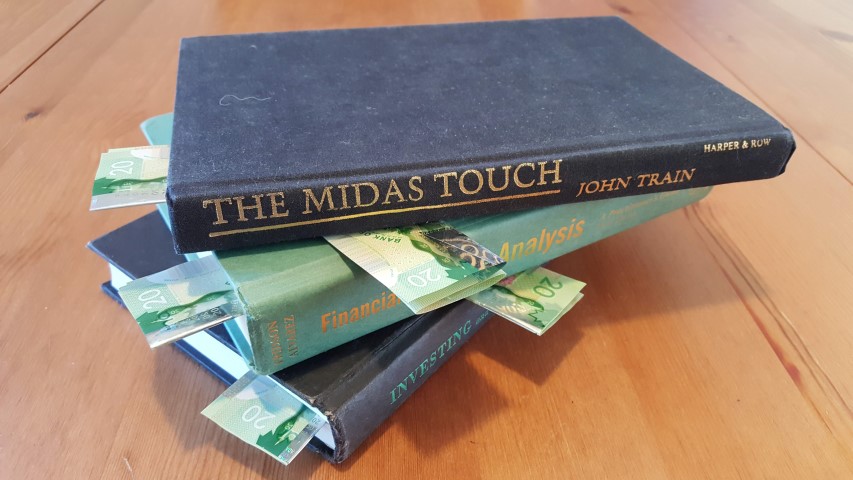
Money saving strategies are important, but it’s not always easy to know where to start. On top of that, in these days of information overload it’s easy to feel overwhelmed with complicated schemes that are tough to stick to long-term. As an easy antidote, to help jump-start any strategy, here’s a list of my favorite saving habits. These are simple and straightforward, and can help trick you into getting a little bit richer every day without feeling like you’re scrimping.
1. Automate, automate, automate!
My favorite money saving strategy is automating… everything! After I get paid, I have automatic transactions set up that move a portion of my pay to a high interest savings account. By having this in place, I’m treating my savings as another bill payment – this means no matter what happens after that, I’m already putting my savings first and my spending second.
Regardless of if automating your savings will work for you, consider automating payments for bills like your credit card, car lease, student or other loans, and your rent or mortgage. This is a simple strategy that’s helpful in more than one way. First, it helps to reduce your mental load of decision making and make your to-do list just a little bit shorter. Second, it helps you avoid the hefty extra fees and interest costs that are incurred by missing even just one payment.
If you’re at the point where you’ve already set up an automatic transfer to a savings account, then you can start thinking about further steps. You can, for example, set up automatic contributions to an RSP, TFSA, or investment account.
For me, the bottom line is that automation brings me peace of mind. I know that my bills will be taken care of, that my savings are growing a little each month, and that my credit card will be paid off on time and in full. If you ever wake up in the middle of the night wondering if you remembered to make a payment, consider doing the same. Automation – not just for robots!
2. Track Spending and Budget!
But how do I know how much to automatically put in savings? The answer is that I know because I always track my spending, and at the start of every year I build a budget. By doing these two things, I’m able to see how much I can afford to save, as well as where I can cut back, which both help me to improve my overall financial outlook.
Regularly reviewing credit card and bank statements also helps my partner and I catch and cull unused subscriptions and other unnecessary costs (like sneaky “insurance” that may be offered by your credit card provider). In addition to helping us reach our savings goals, budgeting lets my partner and I plan for irregular lump-sum costs like life insurance, income tax, or property tax payments.
Although tracking spending and budgeting take time, they are incredibly powerful financial tools and they have helped us to fine-tune our finances. If you’re serious about saving, then you may want do the same. From there, other important priorities like growing your net worth and overall balance sheet can start to fall into place.
3. Use high interest savings accounts:
A lot of people put their hard-earned money or their emergency fund into a regular savings or chequing account, but these accounts make minimal or no interest. If this is you, consider opening a high-interest savings account (you should be able to find something at 2% or greater). Over the long run, even small monthly interest payments in a high-interest account can add up to big savings.
There are lots of easy options out there beyond the big banks. Some are listed here on Ratehub. Others to look at are Motive Financial, Manulife Bank, Hubert, President’s Choice, and Simplii.
No matter which bank you choose, the interest earned in a high-interest account will be much better than most chequing or savings accounts. Every little bit counts, and helps you to harness the great power of compound interest!
4. Trick Yourself into Thoughtful Buying:
It is so easy to impulse buy these days, regardless of whether you’re shopping in store or online. To try to combat this urge in ourselves, my partner and I strive to take time to really think about a purchase before we go ahead with it. We also try to shop with a list (whether grocery or Christmas shopping), buy in bulk, buy used when we can, and wait for sales or coupons if we’ve had our eye on something for a while.
A warning though – while coupons and sales can help us save, they can also encourage us to spend on things we don’t actually need. As shoppers, we need to remember that sales and promotions aren’t just about saving us money – they’re about making the retailer money as well. It’s important to resist the allure of shopping for the sake of a great deal, and to ask ourselves first, “Why do I want this,” and “Do I really need to shop at all?”

Other helpful tricks include spending less time visiting the shops and sites where you know you’ll be tempted to spend. If you visit these places less, you should end up spending less too. If you shop online to pass the time or when you’re bored, try to identify this, and to break the habit by replacing it with another action instead. Your pocketbook will thank you later. I’ve also found I spend less on groceries when I shop on a full stomach and stick strictly to my shopping list. Finally, if you’re shopping with another person, let your friend or partner know what you’re looking for, and ask them to help keep you on track (in my case, this means steer me away from the candy aisle!)
5. Review your transportation costs:
So far, my partner and I have lived in cities and neighbourhoods that have allowed us to forgo owning a car – instead, we bike, walk, take transit, and carpool or carshare when needed. This doesn’t work for many lifestyles, but for us it’s a great fit.
Of course, for lots of folks and for many reasons, a car can be critical. If this is the case for you, consider replacing even one trip per week with an alternate mode of transit. If you can walk, take public transit, or bike instead, you might be able to get where you need without a car, and take in your community from another perspective as well!
In our case, not owning a car (so far) has helped us saved thousands in car payments, gas, insurance, maintenance, repair, and all those other little costs that add up so quickly. This has allowed us to spend more on other items that are important to us, and (you guessed it) save more too. For those who drive, reducing your vehicle use even by small increments can help you make gains, even if it’s just the cost of a tank of gas every month or so.
Final thoughts:
Changing habits and using simple money saving strategies can really help to improve your overall financial picture. It’s a jungle out there though, and it can be tough to know where to start, and then to stick with a change or new goal. I hope some of the five strategies listed above may be simple enough to implement today, and to stick with in the future. Good luck savers!
Please subscribe and if you’re interested in more of my basic financial building blocks, check out my keystone blog post: Seven Financial Rules I Live By.
Disclaimer:
Please keep in mind I am not a financial advisor and the opinions expressed are my own. My Money Moves does not provide financial advice – it is an informational website that details my own approach to my own money and personal finances. If you need specific financial help or guidance, please do your own research and seek out a professional who can work with you to reach your goals.

I very rarely go into the grocery store with a dinner plan. I know the staples that my household always uses and pick our week of dinners based on what is on sale that week. Saves money and allows for some creativity.
Good call Natasha, that is smart, straightforward, and simple.
Check out wealthsimple cash. It’s a checking/spending account that gives you 2.4% in interest. Pretty neat for millenials. As for grocery shopping, we figure out a meal plan, then only buy what we are going to cook. They’re not always on sale, but we reduce waste.
I’ll check out wealthsimple cash for sure, thanks Abhinav. I’m always looking for new high interest accounts.